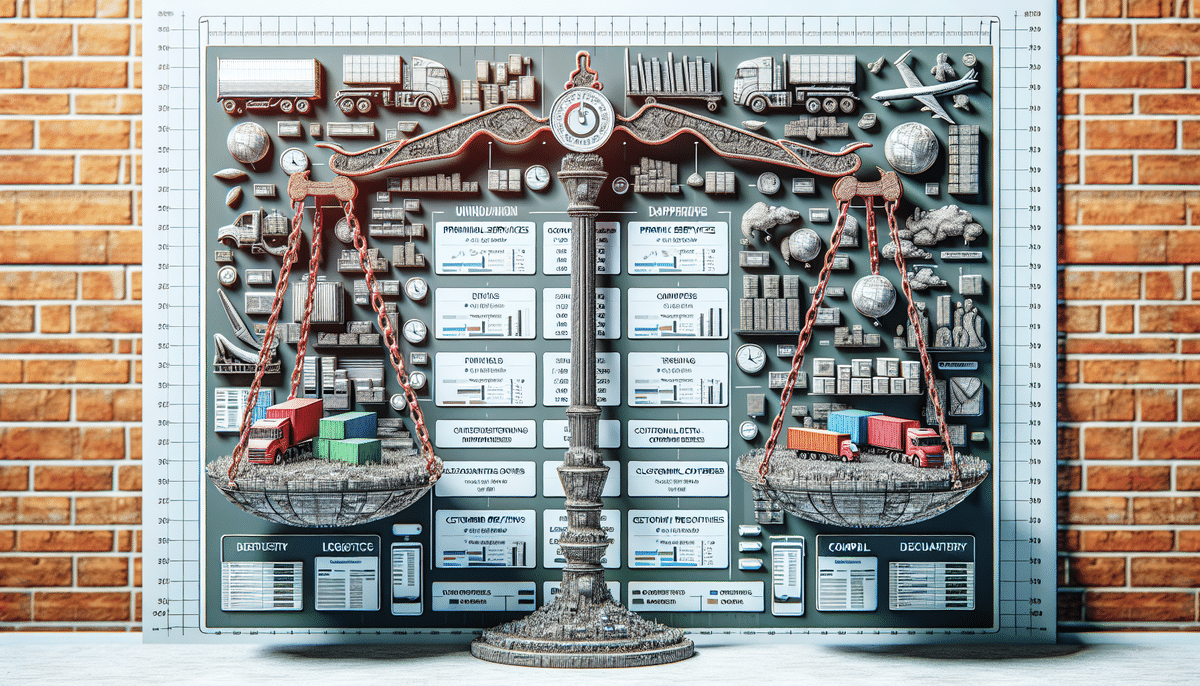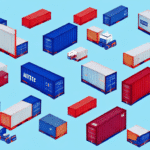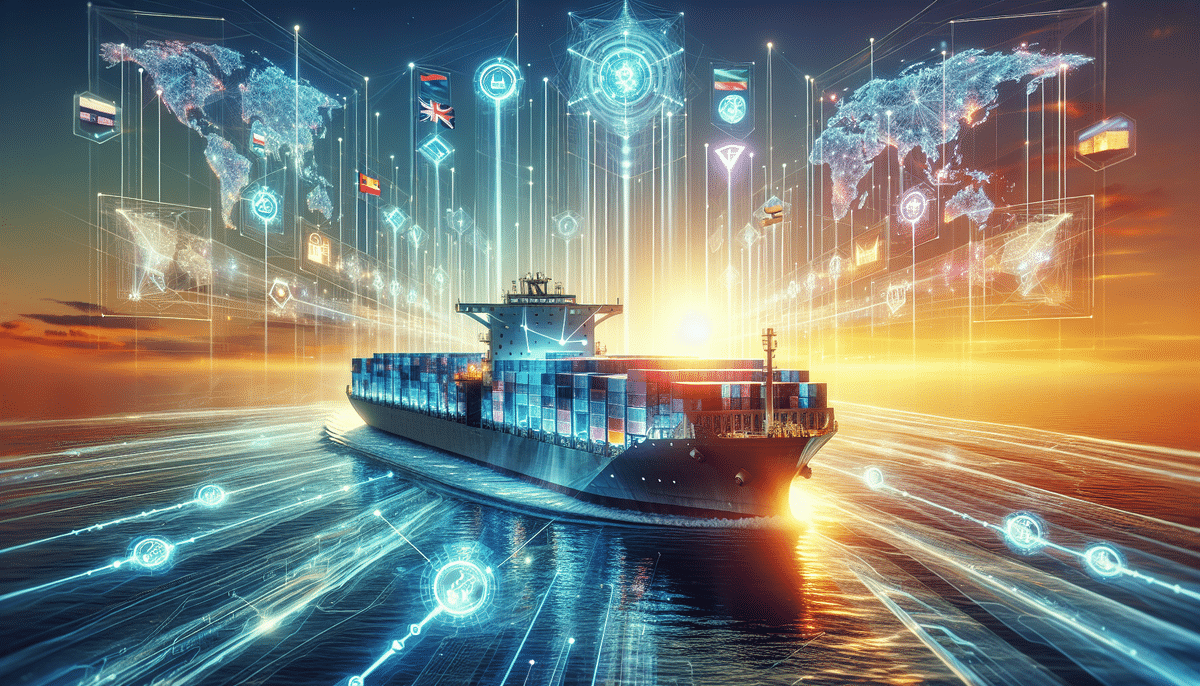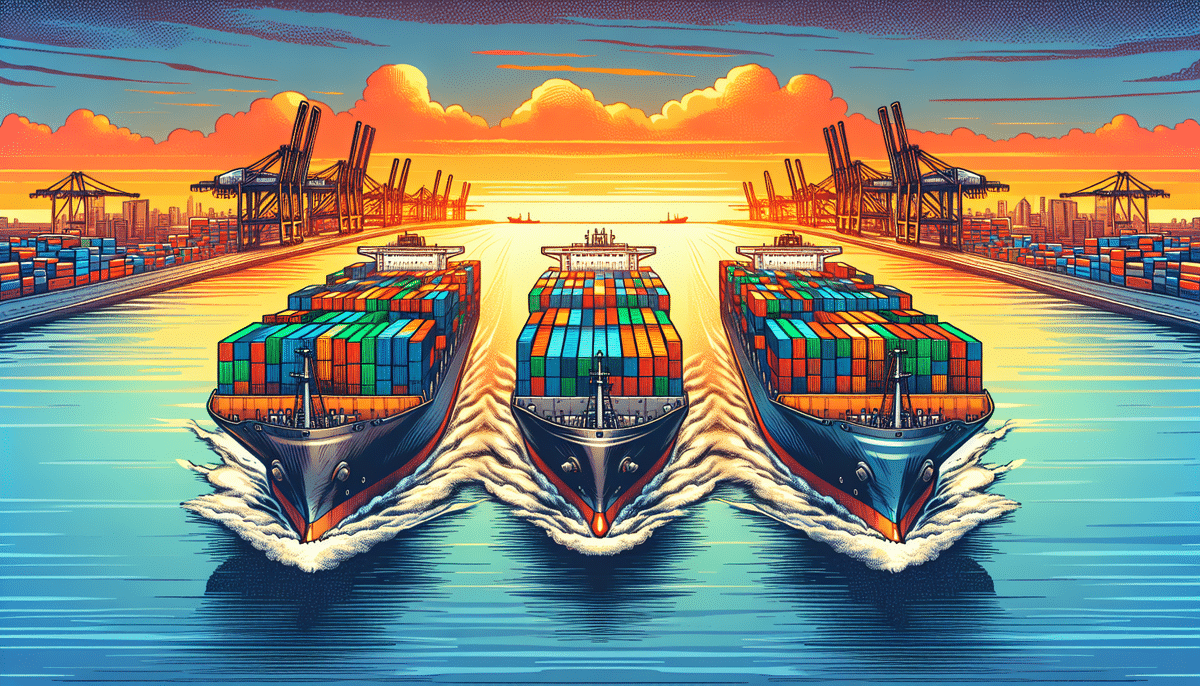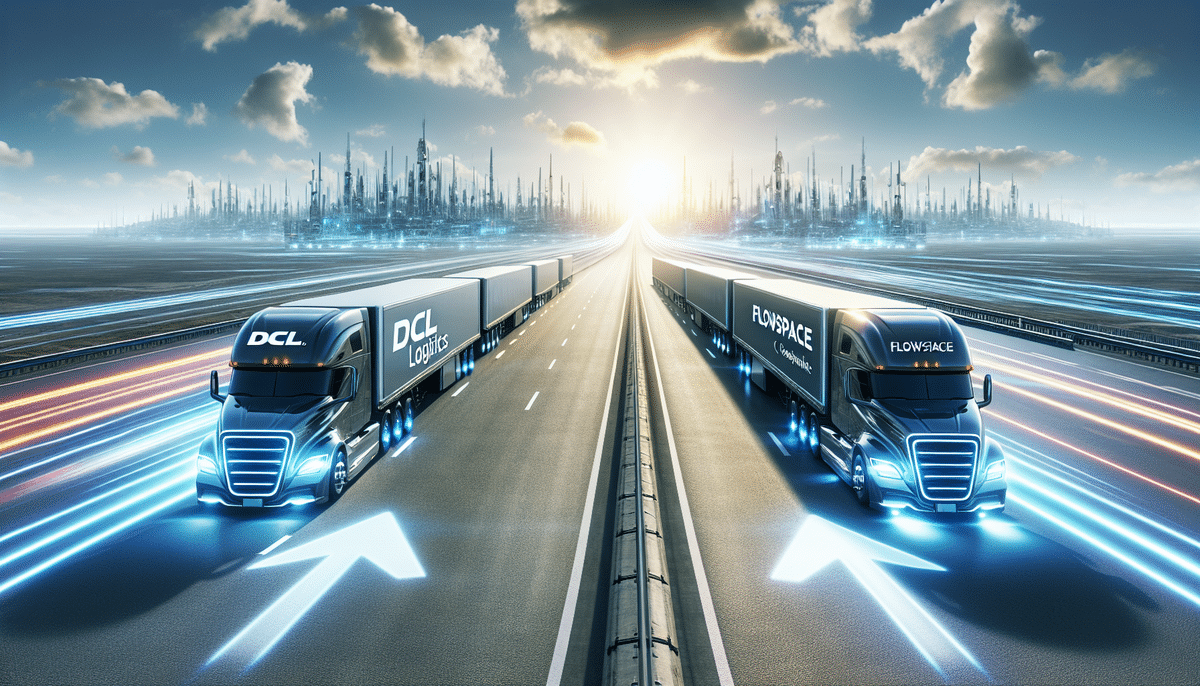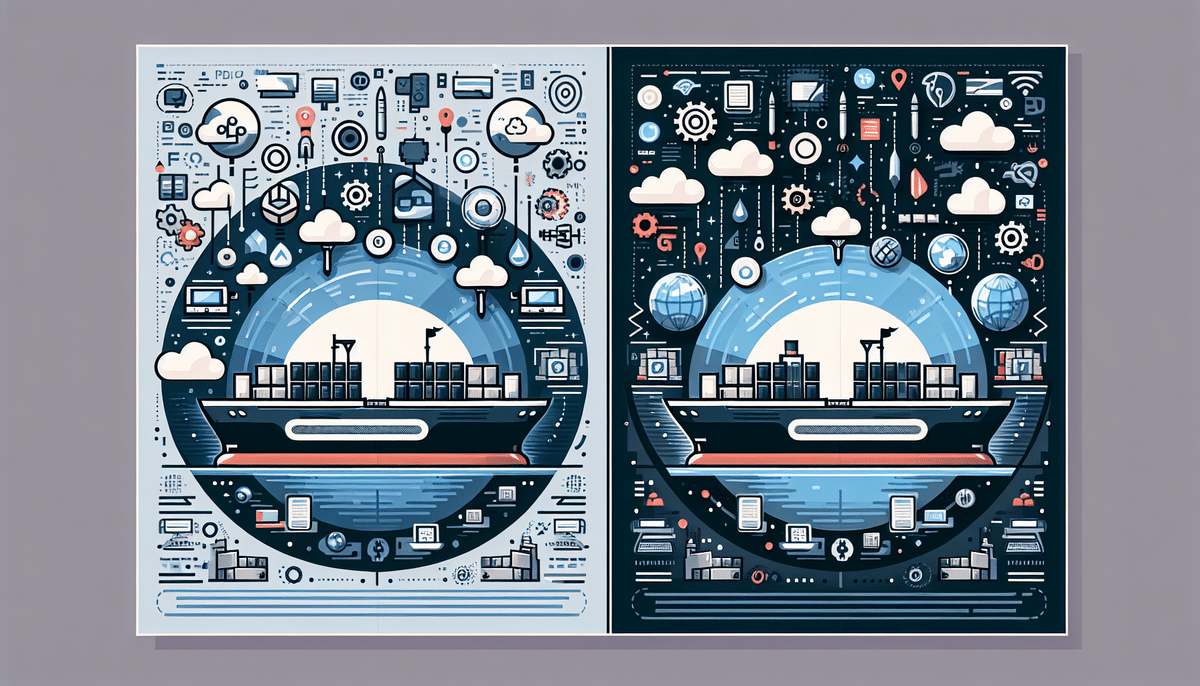Flowspace vs DCL Logistics: Comprehensive SEO Optimized Comparison
In the logistics industry, numerous companies provide warehousing, shipping, and distribution services. Two of the most prominent providers today are Flowspace and DCL Logistics. With their unique services and approaches to helping businesses grow, determining which one best suits your company's needs can be challenging. This article offers an in-depth comparison of Flowspace and DCL Logistics, covering key areas such as company history, services offered, pricing, customer reviews, shipping and distribution networks, and future industry trends.
Overview of Flowspace and DCL Logistics
Flowspace is a modern warehousing and fulfillment platform with a network of over 120 warehouses across the United States. The company offers an online platform connecting businesses with on-demand warehousing and fulfillment services. Flowspace provides a range of services, including inventory management, order fulfillment, shipping, and last-mile delivery.
DCL Logistics, in contrast, is a full-service logistics provider with over 35 years of industry experience. The company offers customized logistics solutions, including warehousing and distribution, fulfillment, transportation, and e-commerce services. DCL Logistics boasts a network of facilities in California, Kentucky, and New Jersey, serving a broad range of industries such as food and beverage, technology, and consumer goods.
Both Flowspace and DCL Logistics are committed to providing efficient and cost-effective logistics solutions to their clients. Flowspace's online platform allows businesses to easily manage their inventory and fulfillment needs, while DCL Logistics' customized solutions cater to the specific requirements of each client. With their extensive networks of warehouses and facilities, both companies provide fast and reliable services to businesses of all sizes and industries.
History and Background of Flowspace and DCL Logistics
Flowspace was founded in 2017 by Ben Eachus and Jackson Cummings. The entrepreneurs aimed to challenge the traditional warehousing and distribution business model, making it more accessible and affordable for businesses of all sizes. Flowspace's online platform simplifies the process of finding and managing warehouse space, helping businesses reduce costs, increase flexibility, and improve order fulfillment times.
DCL Logistics has been providing logistics solutions since 1985. Originally established as a fulfillment center for the technology industry, it catered to brands like Apple and IBM. Over the years, DCL Logistics expanded its services to cover new industries and opened additional facilities across the United States. Today, the company continues to innovate and offer tailored logistics solutions to meet the complex needs of its diverse range of clients.
Since its founding, Flowspace has experienced rapid growth and now operates in multiple states across the United States. The company has expanded its services to include not only warehousing and distribution but also transportation and fulfillment. Flowspace's commitment to innovation and customer satisfaction has earned it a reputation as a leader in the logistics industry.
DCL Logistics has also evolved and adapted to changing market conditions. In recent years, the company has invested heavily in technology and automation to improve efficiency and reduce costs. DCL Logistics has expanded its global reach, establishing partnerships with logistics providers in Europe and Asia to better serve its clients' international needs.
Key Differences Between Flowspace and DCL Logistics
The primary difference between Flowspace and DCL Logistics lies in their approach to warehousing and fulfillment. Flowspace focuses on providing an on-demand warehousing and fulfillment platform, where businesses can rent warehouse space and manage their inventory online. DCL Logistics, meanwhile, offers end-to-end logistics solutions, including warehousing, transportation, and fulfillment services, all tailored to the client's specific needs.
Another key difference is their geographical coverage. Flowspace has a nationwide network of warehouses, providing businesses with access to warehousing and fulfillment services in almost any location in the United States. In contrast, DCL Logistics has facilities located in California, Kentucky, and New Jersey, catering to a smaller geographic region but offering more customization for clients based in those areas.
A further distinction is their pricing model. Flowspace charges businesses based on the amount of space they use, with no long-term commitments or minimum usage requirements. DCL Logistics, on the other hand, offers customized pricing based on the specific needs of each client, which may include minimum usage requirements or long-term contracts. This difference allows businesses to choose the option that best fits their budget and usage needs.
Comparing Services Offered by Flowspace and DCL Logistics
Both Flowspace and DCL Logistics offer a broad range of services related to warehousing, fulfillment, and distribution. However, there are some key differences in the services provided by each provider.
- Flowspace offers:
- Inventory Management
- Order Fulfillment
- Last-Mile Delivery
- Real-Time Data Analytics
- Returns Processing
- DCL Logistics provides:
- Warehousing and Distribution
- Transportation Services for Domestic and International Shipping
- Fulfillment Services, including kitting
- E-commerce Order Fulfillment
- Subscription Box Fulfillment
- Retail Distribution Services
Flowspace's online platform allows businesses to manage their inventory, track orders, and view real-time data analytics, making it easy to optimize their warehousing and fulfillment operations. DCL Logistics ensures seamless movement of products across the supply chain with its comprehensive transportation services.
Flowspace vs DCL Logistics: Best Choice for Your Business
Choosing between Flowspace and DCL Logistics depends on the specific needs of your business.
- Choose Flowspace if:
- You need an on-demand warehousing and fulfillment platform.
- You value simplicity, flexibility, and nationwide coverage.
- You prefer managing operations through an online platform.
- You're a growing e-commerce business requiring scalable solutions.
- Choose DCL Logistics if:
- You require a complete logistics solution covering every aspect of your supply chain.
- You have complex logistics needs that benefit from customized solutions.
- You operate within or near California, Kentucky, or New Jersey.
- You're seeking international logistics support and global partnerships.
Pricing Comparison: Flowspace vs DCL Logistics
Flowspace's on-demand warehousing and fulfillment platform offers competitive rates for businesses of all sizes. The pricing model is transparent, with no hidden fees, allowing businesses to manage their fulfillment costs effectively. According to their [pricing structure](https://www.flow.space/pricing), costs are based on storage space used and the volume of orders processed.
DCL Logistics's pricing varies based on the client's specific needs and requirements. The company provides customized pricing quotes, ensuring businesses only pay for the services they require. This flexibility can be advantageous for businesses with unique or fluctuating logistics demands. For detailed pricing information, businesses are encouraged to request a [custom quote](https://www.dcllogistics.com/contact).
Customer Reviews and Feedback
Both Flowspace and DCL Logistics have received positive reviews from their clients.
- Flowspace is praised for its user-friendly online platform, which simplifies the management of warehousing and fulfillment operations. Customers also value Flowspace's 24/7 customer support team, ready to assist with any issues or questions. According to [Trustpilot](https://www.trustpilot.com/review/flow.space), Flowspace maintains a high customer satisfaction rating.
- DCL Logistics receives commendations for its reliable and efficient logistics services. Clients appreciate the company's customized solutions and the professionalism and expertise of the DCL Logistics team. Reviews on [Google](https://www.google.com/search?q=DCL+Logistics+reviews) highlight their commitment to customer success.
Shipping and Distribution Networks
Both Flowspace and DCL Logistics have extensive networks of warehouses and distribution centers.
- Flowspace offers a nationwide network with over 120 warehouses, ensuring fast and cost-effective fulfillment across the United States. This expansive network allows for strategic placement of inventory, reducing shipping times and costs.
- DCL Logistics has facilities in California, Kentucky, and New Jersey, providing customized logistics solutions for businesses based in these regions. Their targeted locations support efficient distribution within key markets.
Regarding shipping, both providers offer domestic and international transportation services, allowing businesses to move products efficiently across the supply chain.
- Flowspace provides last-mile delivery and same-day or next-day shipping options, ideal for businesses needing fast and reliable shipping services. They integrate with major carriers like UPS, FedEx, and USPS to ensure timely deliveries.
- DCL Logistics offers comprehensive transportation services, including ocean and air freight, to ensure the seamless movement of products from manufacturers to end customers. Their global partnerships enhance their international shipping capabilities.
Pros and Cons of Flowspace and DCL Logistics
Flowspace
- Pros:
- Simplicity and ease of use with an intuitive online platform.
- On-demand warehousing with no long-term commitments.
- Nationwide coverage with a large network of warehouses.
- 24/7 customer support.
- Scalable solutions for growing businesses.
- Cons:
- Focus on online solutions may limit comprehensive logistics services.
- Less customization compared to full-service providers.
DCL Logistics
- Pros:
- End-to-end logistics solutions tailored to specific needs.
- Extensive experience and expertise in the logistics industry.
- Customized solutions for complex supply chains.
- Global partnerships for international logistics.
- Strong customer service and support.
- Cons:
- Potentially higher costs due to extensive services.
- Limited geographic coverage compared to Flowspace.
- Customized pricing may require longer negotiation periods.
How to Choose Between Flowspace and DCL Logistics
To choose between Flowspace and DCL Logistics, assess your business needs, analyze your budget, and identify your key requirements. Consider factors such as the size of your business, the complexity of your supply chain, and the geographic areas you need to serve. Evaluate the costs associated with each provider and determine which services best meet your requirements.
- Assess Your Business Size and Growth: Flowspace is ideal for small to medium-sized businesses looking to scale, while DCL Logistics is better suited for established businesses with complex logistics needs.
- Evaluate Supply Chain Complexity: If your supply chain involves multiple steps and requires customization, DCL Logistics offers tailored solutions. For more straightforward fulfillment needs, Flowspace provides efficient services.
- Consider Geographic Needs: Flowspace's nationwide network is advantageous for businesses requiring broad coverage. DCL Logistics is preferable if your operations are concentrated in their specific regions.
- Budget and Pricing Flexibility: Flowspace's transparent, usage-based pricing is suitable for businesses with variable fulfillment needs. DCL Logistics' customized pricing is beneficial for businesses needing comprehensive services without predictable usage patterns.
Case Studies: Success Stories with Flowspace and DCL Logistics
Both Flowspace and DCL Logistics have helped numerous businesses grow and thrive in the logistics industry.
- Flowspace: Companies such as Thrasio and Native Cosmetics have leveraged Flowspace's on-demand warehousing and fulfillment platform to scale their businesses, reduce costs, and optimize fulfillment operations. Thrasio, a leader in acquiring and scaling Amazon FBA businesses, utilizes Flowspace to manage its extensive inventory efficiently.
- DCL Logistics: Businesses like Boll and Branch and Juice Beauty have achieved success with DCL Logistics' customized solutions that save time and streamline supply chain operations. These companies appreciate the tailored logistics strategies that address their unique market demands.
What Makes Flowspace and DCL Logistics Stand Out in the Marketplace
Both Flowspace and DCL Logistics distinguish themselves in the marketplace through their unique approaches to warehousing and fulfillment services.
- Flowspace: Its online platform simplifies finding and managing warehouse space, ensuring businesses have easy access to affordable and reliable fulfillment services. The on-demand model allows for flexibility and scalability, which is attractive to rapidly growing businesses.
- DCL Logistics: Offers customized logistics solutions that provide businesses with the flexibility, expertise, and scale needed to manage complex supply chains successfully. Their extensive experience and global partnerships enable them to handle intricate logistics challenges effectively.
Future Trends for Flowspace and DCL Logistics in the Logistics Industry
The logistics industry is continuously evolving, driven by new technologies, changing consumer demands, and global market shifts. Flowspace and DCL Logistics are both positioned to stay ahead of emerging trends and challenges.
- Leveraging Data Analytics and Artificial Intelligence: Both companies are likely to integrate more advanced data analytics and AI to improve supply chain operations, forecast demand, and optimize inventory management.
- Increasing Sustainability and Eco-Friendliness: With growing environmental concerns, both Flowspace and DCL Logistics may adopt more sustainable practices, such as using eco-friendly packaging materials and optimizing transportation routes to reduce carbon footprints.
- Expanding Geographic Coverage: To meet the needs of businesses worldwide, both providers may work on expanding their geographic coverage, establishing new warehouses and distribution centers in strategic locations.
- Enhancing Automation and Robotics: Automation in warehousing and fulfillment processes can increase efficiency and reduce errors. Both companies are likely to invest in robotics and automated systems to enhance their service offerings.
Conclusion
Choosing between Flowspace and DCL Logistics is a crucial decision for any business seeking to optimize its fulfillment operations and streamline its supply chain. Both companies offer unique services that cater to different types of businesses, ranging from small startups to established enterprises. By evaluating their services, pricing, and key differences, businesses can determine which provider best meets their requirements. Whether it's Flowspace's on-demand warehousing and fulfillment platform or DCL Logistics' customized logistics solutions, businesses can find a partner that helps them grow and succeed in the competitive logistics industry.













